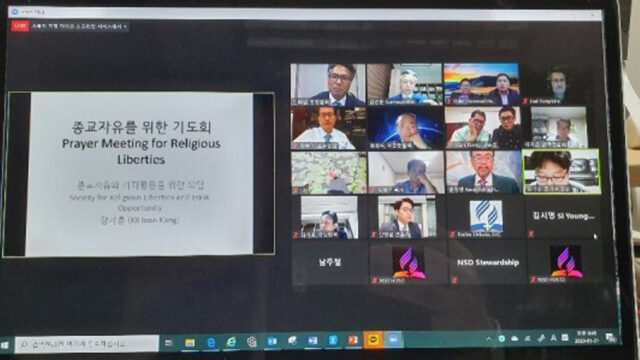Tonight I watched the film Tell the World with my church family. Afterward everyone, including me, shared their thoughts and reactions—amid a sudden […]

Tonight I watched the film Tell the World with my church family. Afterward everyone, including me, shared their thoughts and reactions—amid a sudden burst of unexpected tears.
It’s because it felt like I was in the movie while I was watching it.
I could have been sitting at the kitchen table with Joseph Bates and his wife, because I read about them by kerosene lamp light as I grew up in the 1970s and 1980s. When schoolteacher Goodloe Harper Bell was splitting wood, I relived swinging the ax and splintering logs in two. The bonnets and long dresses the women in the movie wore could have been mine, for I dressed that way every day, along with my mom—except our bonnets were even bigger.
Experiencing the time warp was only part of what evoked the tears, though. Mostly it was confronting two Ellen Whites and feeling the impact of both on my life—past and present.
Another Time, Another Place
First, there was the Ellen White of my childhood who wrote the red books (and black ones, too, along with lots of unpublished writings that my parents studied). She was why I was taught to wear big bonnets. Ellen White said, “The small bonnets, exposing the face and head, show a lack of modesty,”1 and to wear my dresses inches from the floor, avoiding the “extreme long dress, trailing upon the ground, and . . . the extreme short dress, reaching about to the knees, which is worn by a certain class.”2
When the Ellen White in the movie started telling her astonished husband what she had learned about diet, I laughed each time she said, “And there’s more,” because I remembered what the Ellen White presented to me in my childhood had said. I had experienced it all starting at 6 years old: two meals a day and “[not a] morsel . . .
between meals”;3 along with what she didn’t counsel: weekly fasts, 10-day fasts, raw food diets, colon cleanses, and more.
That Ellen White was why we lived out in the wilderness, isolated, waiting for Jesus to return. At a time when city living was distinctly unhealthy and frequently unholy, she had written, “Get out of the cities.”4 That Ellen was the reason we kids couldn’t use our voices, simple sound effects, and a battery-run tape recorder to create animated versions of Bible stories, because she written that drama is a sin (actually, she didn’t). It was why I could not go to school, and instead was homeschooled alone. Interpretations of her counsels were the reasons why eating a piece of pizza, listening to a bouncy tune, or failing to kneel for every prayer were as bad as wearing pants, wearing jewelry, committing fornication, and breaking the Sabbath.
A Person, Not a Program
However, at the age of 12 I discovered another Ellen White. She wasn’t the one used to squash nearly everything I longed for as a child and who made me feel guilty over any infraction of a thousand do’s and don’ts.
Fed up with being told what Ellen White said, I started reading her writings for myself to see what was there. I discovered that she told amazing Bible stories and detailed the life of Jesus. I picked up her book Steps to Christ, and it helped lead me in surrendering my life to Jesus. One of my favorite pastimes became slipping outdoors on a moonlit night to read about Jesus in Gethsemane.
This Ellen White not only turned my heart toward Christ but also challenged my thinking, causing me to question whether my well-intentioned parents had possibly gotten things wrong. It took many years before I understood they had gotten off center and out of balance, but all I knew then was that something had to be wrong when I read this quote:
“Dear youth, what is the aim and purpose of your life? Are you ambitious for education that you may have a name and position in the world? Have you thoughts that you dare not express, that you may one day stand upon the summit of intellectual greatness; that you may sit in deliberative and legislative councils, and help to enact laws for the nation? There is nothing wrong in these aspirations.”5
Our parents had withdrawn from the world and taught us kids to shun it. Yet this Ellen White was saying, “You may every one of you make your mark. . . . Aim high, and spare no pains to reach the standard.”6 I tried to imagine standing on the floor of Congress without ever going to school or getting involved with politics and wearing my bonnet and long dress, advocating for some bill to become law.
I couldn’t.
A Wider Vision
Then another statement whispered into my heart the possibility that God had a wider purpose for me:
“The whole world is opening to the gospel. Ethiopia is stretching out her hands unto God. From . . . every quarter of this world of ours comes the cry of sin-stricken hearts for a knowledge of the God of love. Millions upon millions have never so much as heard of God or of His love revealed in Christ. It is their right to receive this knowledge. . . . And it rests with us . . . to answer their cry.”7
The words resonated in me as a direct, personal appeal. I wanted to be part of reaching the millions. But how with a bonnet on my head?
It took years, but eventually I was able to go where I could learn about principles—great underlying truths that don’t change, by which I could govern my life and make changes.
Later I also developed a relationship-based understanding of Jesus and of the gift of the Spirit of Prophecy that helped me learn how to reach out to people without my beliefs encaging me like a suit of armor. In fact, earlier in the week before watching the movie, I had shared my story of getting beyond extremism and
on to vibrant faith in a podcast recording for a general-listener audience of 60,000. Yes! I thought, I’m beginning to reach out to a fraction of those millions!
Then tonight I watched Tell the World. The Ellen White I saw was like the one I met for myself long ago. This one shared what was revealed to her as best as she could capture it, but constantly pointed people to the Bible. This one challenged everyone to tell of God and His love.
Two pictures of Ellen White were held up before me. One is the weapon of choice for many in championing personal views, a stern authority figure demanding unquestioning
obedience. The other was a real person who just tried to tell the world about amazing truths revealed to her and wanted to help everyone better hear the loving heartbeat of God. It seems to me Tell the World captures that Ellen White, the one the Ellen White who actually lived wanted others to know.
But I didn’t think about all that when I tried to share my thoughts with my church family. All I knew was that I could not hold back the tears.
To view the film, go to artv.adventist review.org and search for Tell the World. n
1 Ellen G. White, Testimonies for the Church (Mountain View, Calif.: Pacific Press Pub. Assn., 1948), vol. 1, p. 189.
2 Ibid., p. 464.
3 Ellen G. White, in Christian Temperance and Bible Hygiene (Battle Creek, Mich.: Good Health Pub. Co., 1890), p. 50.
4 Ellen G. White, Selected Messages (Washington, D.C.: Review and Herald Pub. Assn., 1958, 1980), book 2, p. 141.
5Ellen G.White, Messages to Young People (Nashville: Southern Pub. Assn., 1930), p. 36.
6 Ibid.
7 Ellen G. White, Education (Mountain View, Calif.: Pacific Press Pub. Assn., 1903), pp. 262, 263.
Rachel Williams-Smith, Ph.D., Ed.D., is author of the memoir Born Yesterday: The True Story of a Girl Born in the 20th Century but Raised in the 19th, and dean of the School of Journalism and Communication at Southern Adventist University, Collegedale, Tennessee, United States








